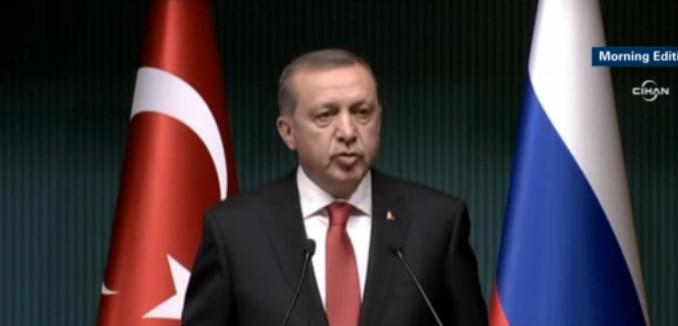Israel and Turkey have reached an agreement to restore diplomatic ties, ending five years of strained relations, Ha’aretz reported Thursday.
The understanding was reached in Zurich, Switerzland by Joseph Ciechanover, Prime Minister Benjamin Netanyahu’s personal envoy to Turkey; Israeli National Security Adviser Yossi Cohen; and Turkish Foreign Ministry Under-Secretary Feridun Sinirlioğlu.
The crisis in relations between the two countries was exacerbated by the IDF’s 2010 raid on the Mavi Marmara. The ship, which was under the control of the Turkish Humanitarian Relief Foundation—a group designated as a terror organization by the Netherlands and Germany—was part of a flotilla attempting to break Israel’s blockade of the Hamas-ruled Gaza Strip. After the IDF boarded the Mavi Marmara, they were attacked by members of the crew. Ten crew members were killed in the ensuing fight, and several Israeli soldiers were injured. The other ships in the flotilla were diverted without incident. Israel has agreed to pay $20 million in compensation for those killed or injured in the raid, and Turkey will pass a law annulling any further legal claims against any IDF personnel stemming from the incident.
As a result of the deal, Turkey and Israel will restore full diplomatic relations and return ambassadors to Tel Aviv and Ankara, respectively. Turkey will also expel Salah al-Arouri, a senior Hamas official based in Turkey who directed the terror group’s operations in the West Bank. In recent years, many top Hamas officials have taken refuge in Turkey where they have been able to operate in the open, but Turkey has agreed to crack down on Hamas’ operations in its territory.
After the agreement is finalized, Israel will begin selling natural gas to Turkey and will lay a pipeline through which Israel will be able to export natural gas to Europe.
The announcement of the understanding comes nearly three years after President Barack Obama facilitated a phone call between Netanyahu and Turkish Prime Minister (now President) Recep Tayyip Erdoğan in an effort to reconcile the two countries. Since then, diplomatic progress had been slow. Over the summer and fall, Israeli officials started signaling a growing rapprochement with Turkey.
In September, Israeli Foreign Ministry Director General Dore Gold praised Sinirlioğlu, stating that “I think the general direction we are moving is positive.” The tone of Gold’s remarks was echoed earlier this week by Erdoğan, who said that reconciliation with Israel would benefit the whole region.
Gold’s comments in September also touched on the shared challenges faced by Israel and Turkey, where cooperation between the two could be helpful for stabilizing an increasingly dangerous region:
ISIL now has a presence in Sinai peninsula. Very close to our border. One of the current features of presence of ISIL in northern Sinai is the cooperative relationship between ISIL and Hamas. Iran has to figure largely in the national security considerations of both of our countries. Iran is largely responsible for a good deal of the chaos in the Middle East today. Iran modus operandi includes use of religious methods for spreading its power and influence. There are perceptions on Iran becoming more moderate from being a radical threat. To the contrary, we believe that Iranian agreement with P5+1 could give Iranians a sense of empowerment. As Israel and Turkey, at different times, we have been targets for Iran. Discussion is needed for protecting our national interests.
[Photo: i24News / YouTube ]




